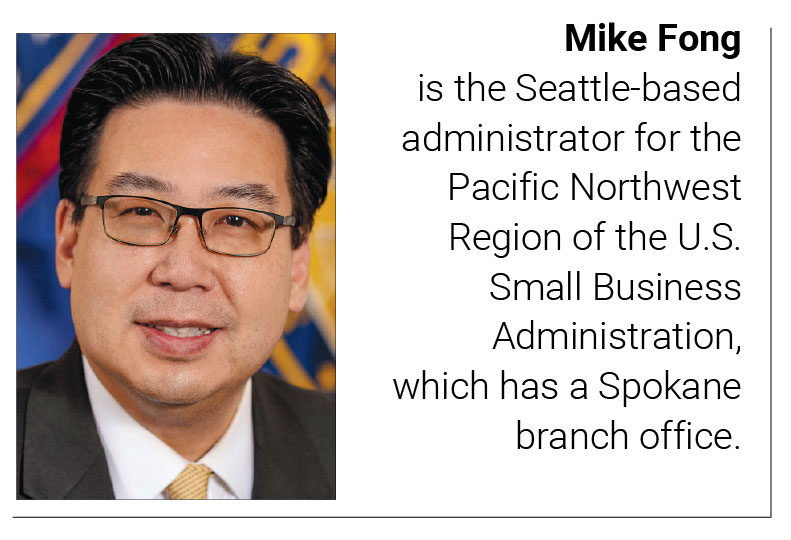
Home » SBA urges emphasis on racial, gender equity
SBA urges emphasis on racial, gender equity
Underrepresented groups disproportionately hurt economically by pandemic

April 7, 2022
Since the start of the pandemic, the U.S. Small Business Administration has worked to save the nation’s small businesses. In Washington state alone, the agency provided more than $11 billion worth of economic aid, and 178,000 loans and grants were awarded to businesses. This presents enormous opportunity for our agency to build on these new relationships with business owners and identify other programs and tools that will help them grow, thrive, and become more resilient.
My father owned a Chinese restaurant in Post Falls, Idaho, in the late 1980s. For a few years, business was booming until a road construction project outside his front door not only uprooted the street but his restaurant along with it. The road closure led to a dramatic decline in customers and ultimately, he had to close.
Unforeseen circumstances are a fact of life for small business owners and entrepreneurs, but nobody anticipated the worldwide upheaval we have experienced since the first confirmed COVID-19 case in our country was diagnosed in Seattle in 2020. This has been a challenge of a lifetime for our small businesses and their employees. We have seen some of our favorite stores, restaurants, and arts-and-entertainment venues close while others are still reeling.
Recently, a new report found that during the pandemic, historically underrepresented communities were disproportionately more likely to experience closure, revenue decline, or a reduction in customers than other businesses. Those findings likely are tied to pre-pandemic realities faced by Black, Latino, and women-owned businesses that were magnified during the public health crisis.
The Biden-Harris administration and SBA Administrator Isabel Guzman have a clear vision: Make equity a focus of recovery and ensure that entrepreneurs from all communities get equal access to the agency’s financial, business training, and contracting programs.
There are three priority areas where we can make progress by working with partner organizations inside and outside of government. The first is access to capital. We know this is critical to all businesses, especially those owned by women, communities of color, and veterans. SBA has several very effective finance programs that help small firms fund working capital, building acquisition, and exporting. The agency’s lending programs help borrowers that may not have the credit score or collateral necessary to secure a traditional loan from a commercial lender. SBA’s finance programs are critically important to empowering underserved communities across the state.
The second priority is to reduce barriers to our programs by reestablishing and creating new relationships with local community partners. During the pandemic, we worked with numerous resource partners and other organizations to provide technical assistance and access to COVID-19 relief programs. SBA’s new Community Navigators Pilot funds organizations across the country—trusted advocates—to reduce barriers within underserved communities to access SBA funding and federally backed programs. In our region, we will have multiple pilot efforts where this model is deployed.
The third area is to prepare our local small businesses to access, compete for, and secure new revenue opportunities from government contracting. In 2021, the federal government purchased more than $25 billion in goods and services from companies based in the Pacific Northwest, with $8.5 billion of that going to our small businesses. With the bipartisan infrastructure law now in place, even more dollars will soon be available. The share of federal procurement spending going to Black, Hispanic, Asian Americans/Pacific Islanders, as well as women and rural-owned businesses, is substantially underrepresented relative to the total number of U.S. businesses owned. We must help them gain equitable access to these contracts and become certified and eligible for these dollars.
We have demonstrated that under extraordinary circumstances, we can knit together an incredible safety net for our community during the COVID-19 crisis. I know we can do the same with intentionality in advancing equity as we build back better.
Like this story?
You’ll love the rest. Subscribe today, and you’ll receive a year’s subscription to the Journal of Business, unlimited access to this website, daily business news emails, and weekly industry-specific
e-newsletters. Click here for 50% off your first year.
Latest News Special Report Banking & Finance
Related Articles
Related Products



